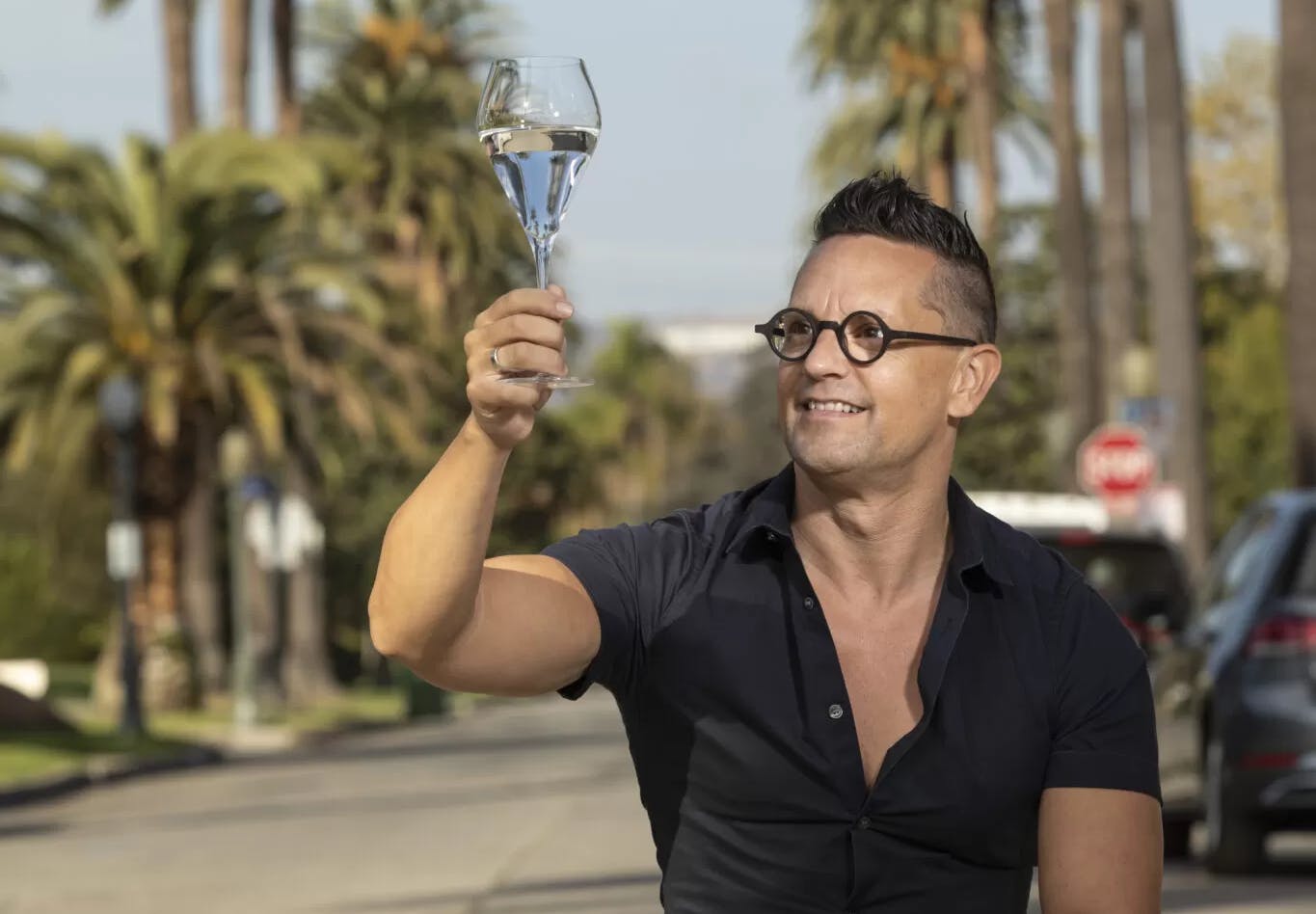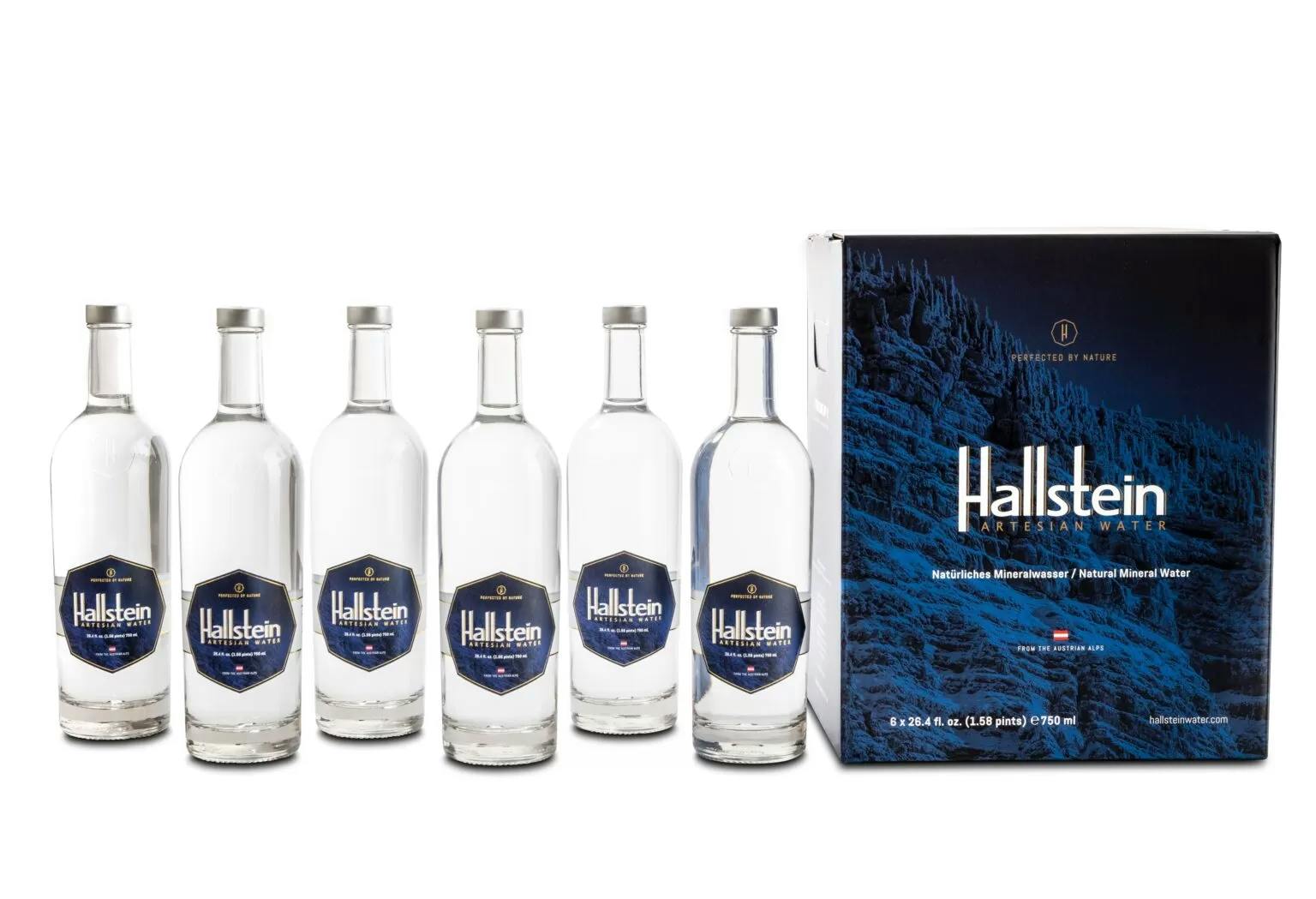Water 101: Lessons from a water sommelier
Originally posted in the "Haute Living San Fransisco: "Water 101: Lessons from a water sommelier". Published on the 4th May, 2022.
Water sommelier? That’s not a typo. That’s a thing. Indeed, Martin Riese, seen on Good Morning America, Conan O’Brien, CNN, and NPR among other key media outlets, has a degree in water. The H2O advocate, educator, television personality, and author, originally from Germany, earned his certification as a mineral water sommelier from the German Mineral Water Association in 2010. Globally revered as an expert, Martin Riese launched Water 101 Class in 2018 to teach students the unique qualities and characteristics of mineral water. Thirsty for knowledge, we asked Riese to tell us six things we should know about water before we take another sip. Note: Riese leads water tasting classes on ZOOM and in person. Get more information here.
Martin Says: Water is not pure.
Yes, I now every water brand wants to tell you that they are the purest water on the planet, but water is actually not just H2O. We all know the water cycle, and at one point, every water is rainwater. When rain comes down, it passes through the different layers of stone and leaches out minerals. At one point water will come out of a spring source and might be bottled as spring water. When you open the bottle, you can taste the different minerals given by nature. The overall mineral content can be measured by bottled water by TDS (total dissolved solids). The higher the TDS is, the more minerals are dissolved, and the stronger the water tastes.
So, yes, every spring water tastes different.

Martins Says: When water has taste, you can pair water like wine.
It’s fascinating how much influence water has on food and other beverages—almost as much as wine. Light white wines are great for light flavors, like salad, sushi, etc. The comparable water would be low TDS waters with no carbonation. Carbonation always adds an acidic note on your palate, and you don’t want to have that when eating salad with vinaigrettes or eating the light flavors of sushi.
Medium TDS waters with a bit of carbonation are great for roasted chicken and for your barbeque party. Water with high TDS and lots of sparkling can be a beautiful counterpart to the fattiness and richness of barbeque.
Drinking wine? A good water should not neutralize your palate. A good water will help your wine be more balanced on your palate. A water with low minerals and no carbonation is great for tannin rich red wines or acidic white wines, like a Sauvignon Blanc. The low minerality and the smoothness of your water will balance the tannins and the acidic notes of wine, bringing more fruit complexity forward.
Martin Says: The eight glasses of water per day rule is a myth.
We all have different needs and lifestyles, and obviously, it’s very important to stay hydrated during your busy day. Your body needs water. We are made up to 60 percent water, but water is hidden in many other beverages and even food. Your body needs liquid, but it does not need to be just the glass of water. You can even eat water: watermelon contains up to 92 percent water; lettuce contains up to 96 percent water; celery contains up to 95 percent water; yogurt up to 81 percent water. Yes, even your cup of coffee in the morning contains a lot of water, up to 98 percent
Despite the common misconception, your cup of coffee or tea is not dehydrating when consumed in moderation.
Martins Says: Don’t be overwhelmed at the water aisle.
There are so many different brands these days offered in your favorite water aisle, and I totally understand how overwhelming it can be to find the right water for you. First of all, there is no best water! We all have different needs and preferences. As a water sommelier, I look first at the label. I don’t really care about the brand; I am interested in the source. This is because I am amazed about the different taste profiles from nature, I would only buy water that comes from natural occurring sources, such as spring, iceberg, glacier, and mineral water. I don’t care for purified water or distilled or vapor distilled waters. Not that the waters have a bad quality, but I am not interested in drinking highly processed tap water where the taste profile is created in a lab. Pretty much around 60 percent of the bottled water offered in the U.S. is just that.
On a side note: When you like to drink water just for hydration, please don’t buy bottled water in general. Drink your filtered tap at home.
Martin Says: Drink Water at room temperature. No ice cubes!
When I drink a new water for the first time, I really want to discover the taste profile of the water. When I chill the water in a refrigerator, I would not be able to really taste the water when drinking it. Very cold water numbs my palate and makes it very hard to really discover the taste. Ice cubes in water? I know, many love their ice cubes, but ice cubes are made with tap water. Tap water has a different mineral composition and might contain chlorine. When adding an ice cube, you actually water down your water with water.
It’s fun to discover new waters. Buy yourself different ones and drink them side by side at room temperature. You will be amazed at how different water can taste.
Martin Says: You can drink too much water!
Also known as water poisoning, water intoxication is caused by drinking too much water. Doing so increases the amount of water in the blood which can dilute the electrolytes, especially sodium, in the blood. Sodium helps maintain the balance of fluids inside and outside cells. When sodium levels drop due to excessive water consumption, fluids travel from the outside to the inside of cells, causing them to swell. When this happens to brain cells, it can be dangerous and even life threatening.
One to Try: Hallstein From Austria

Now being poured in some of the world’s finest luxury hotels, spas, restaurants, private clubs, and health and wellness centers, including the Baccarat Hotel, San Ysidro Ranch, Grand Reserve Inn in California’s Sierra Foothills, and Gabriel Kreuther in New York, Hallstein is a family-owned, sustainably harvested artesian water company. Hailing from Austria’s Dachstein Mountain where it filters through limestone for eight years. Hallstein’s water boasts a rare combination of high 8.3 pH and virtually non-existent sodium level of 0.15 milligrams per liter. Ideal for epicureans and oenophiles, “Hallstein’s velvety taste supports and complements every nuanced flavor profile, due to its naturally high level of dissolved oxygen and high natural pH (alkalinity), producing the perfect match on the palate of connoisseurs,” says Hallstein co-founder Elisabeth Muhr. Besides having a presence at spas and resorts worldwide, the water can be purchased online. Consider a month subscription!